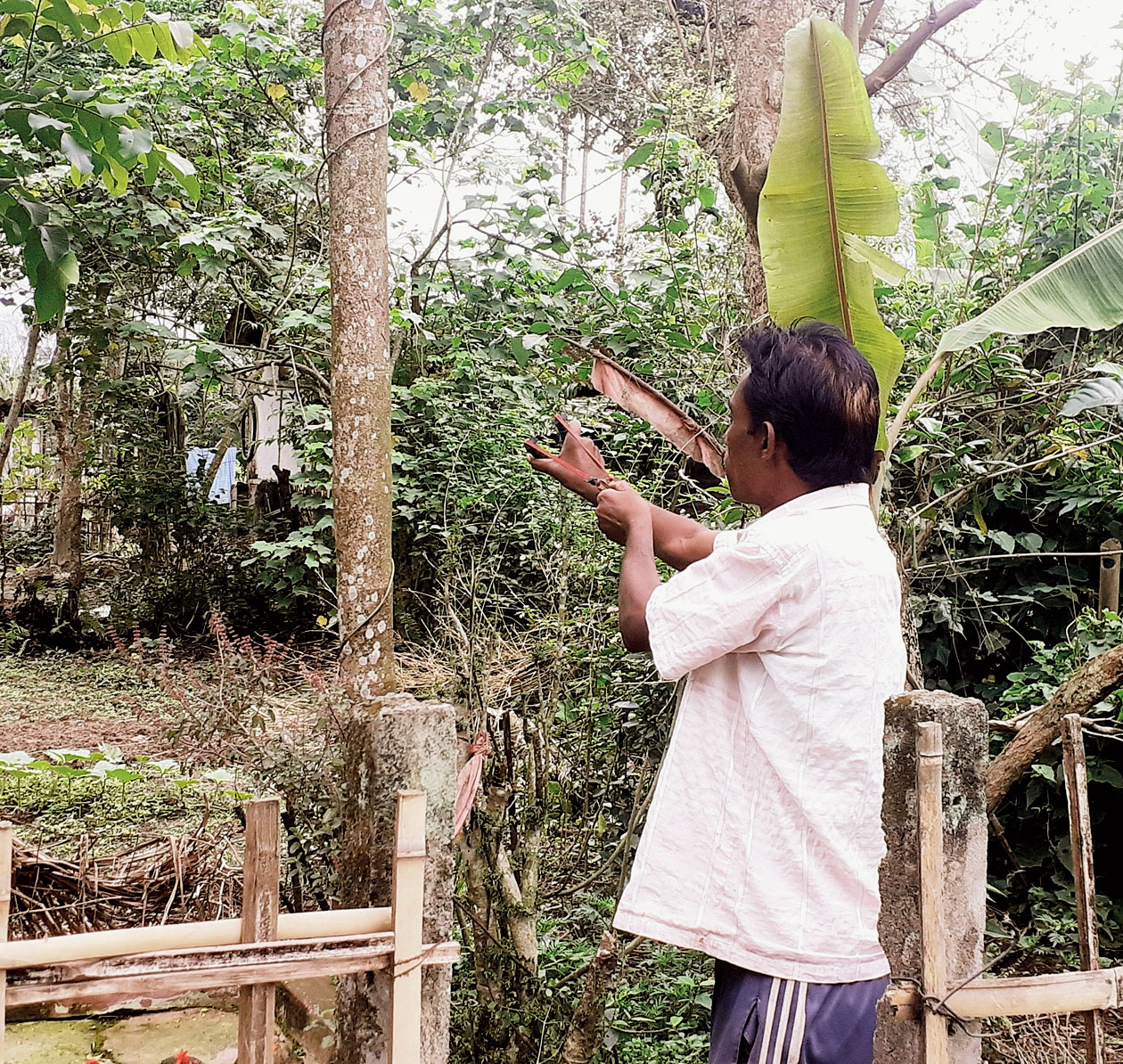The Assam Tea Tribes Students Association (ATTSA) on Thursday urged the state government to issue an advisory to garden hospitals and management authorities on “safe eating habits” for the community during the coronavirus-induced lockdown.
ATTSA Doomdooma unit secretary Irot Tanti told The Telegraph over phone on Thursday, “Eating meat of some animals is a matter of grave concern. We appeal to the state government to issue an advisory to the garden hospitals and management authorities regarding ‘safe eating habits’ to the tea tribes as there is the threat of coronavirus pandemic. Reportedly, it passed into humans from bats. We will extend all kinds of help to the administration to create awareness among Adivasi people. We are also creating awareness through WhatsApp now and suggesting that all pigs be killed and buried away from human habitat to avoid swine flu outbreak.”
The tea tribes have been eating everything from frogs to wild rabbits and insects to avian species during the lockdown period.
“The concert of frogs in the evening amid heavy rainfall for the last few days has brought immense joy to us. We go out to freshwater wetlands and aquatic habitats and catch frogs in the evening. It adds taste to our meal,” Budhu, an Adivasi man, told this correspondent.
The people in Assam are getting foodgrains at government ration shops. They are also getting money in their Jan Dhan accounts and LPG cylinders under Ujjwala Yojana. Legislators, parliamentarians, Samaritans and non-governmental organisations too are helping people with readymade food packets and medicines.
However, the 6.5-million tea tribes and even those among them who do not work in gardens in Assam, are dependent on meat in their diet.
“We are non-vegetarian by nature. The local fish supply has dried up. Our chicken, ducks and goats too. So, we have been searching for other meat alternatives. Thanks to the government for taking care of us but taste and food habits matter a lot. So, we are out as soon as we hear the croaking of frogs in the evening,” Budhu’s friend Arjun said.
The non-vegetarian items being sold by authorised fish-mongers and poultry sellers through home delivery are unaffordable for the Adivasis as many are daily wage workers and jobless for the past month.
“My pet dog Cobra had been lying sad for the last fortnight. Now, it seems he has understood the situation and is bringing us wild rabbits and hens now and then. Our pet cat Kali is also catching plump mice,” Nishad, a tea worker here, said.
These communities were brought to Assam by British tea planters in the late eighteenth century in many phases from Bengal, Bihar, Jharkhand, Chhattisgarh and Odisha . They were hunters by nature and dependent on wild animals and resources . Even now, many keep bows and arrows and catapults in their homes. Most work in 803 organised tea estates and around 6,000 small growers’ gardens,
“They have no option. They have no money to buy meat and fish. Many factories and construction companies are closed. However, when normalcy returns, we will launch a massive awareness programme among the tea tribes against killings of birds and other wild animals,” said Devajit Moran, secretary of wildlife NGO Green Bud Society.
The Assam forest department takes action against any kind of poaching as it is a crime under the Wildlife Protection Act.











